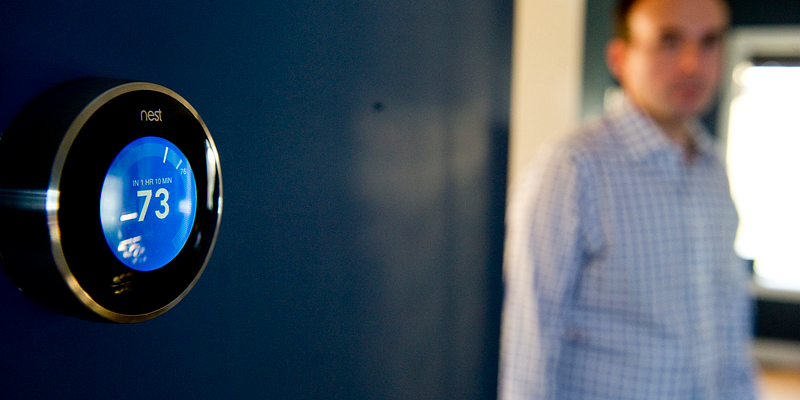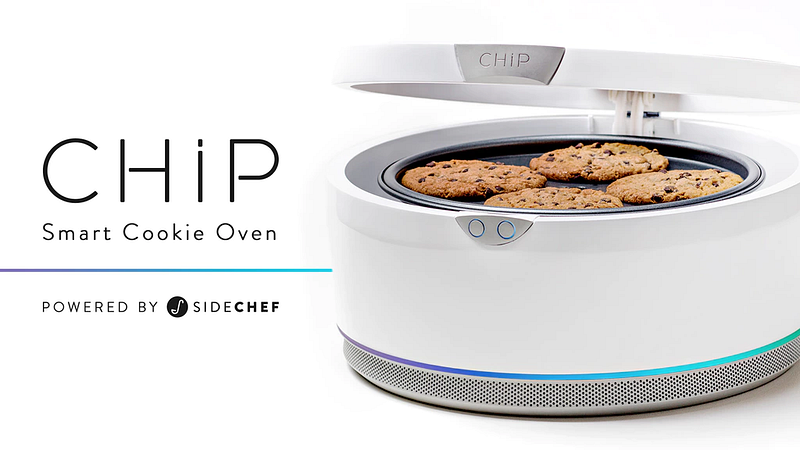The Internet of Things isn’t about “Things”
The Internet of Things isn’t about “Things”
- Last Updated: December 2, 2024
James Schaefer
- Last Updated: December 2, 2024



Let’s face it, IoT devices are a mess. When developing new connected products, the current trend seems to be, “let’s make an internet-connected [blank] device.”
The results have been mixed. While there have been successes like Nest (an internet-connected thermostat) there have also been a multitude of seemingly useless devices such as an internet-connected iron and an internet-connected cookie oven.
But even the successful ideas have problems: take Nest for instance.
[caption id=" align="aligncenter" width="800"]

As pointed out by Daniel Conrad, Nest’s pricing model has some serious issues that need to be addressed. IoT device companies need to ask themselves, what exactly are they selling? Is it just the device itself or a physical manifestation of a service?
Simply making a thermostat that can connect to the internet isn’t enough. To add value, the internet connectivity has to have benefits.
In Nest’s case, having a connected thermostat can potentially save money for consumers.
For the smart cookie oven, being connected to the internet means I can schedule delicious cookies to be ready and warm when I get home from work.
However useful or trivial, it’s the service that adds value over a normal device. Not the physical differences.
[caption id=" align="aligncenter" width="800"]

This doesn’t mean the device isn’t important. But if any company is capable of making a smart thermostat or an iron, the differentiator becomes the value created for customers. This value is provided by services.
Right now the focus is on the hardware which is reflected by the pricing model. There’s a one-time installation cost with no service fees.
This is understandable considering that most people, myself included, hate having to handle a dozen $10 fees every month.
But if an IoT service can provide as much value to someone’s life as Spotify, (e.g. by saving them over $10/month in utilities) while also making their house more comfortable, then I believe that people would be willing to buy in.
That’s not to say that IoT services don’t have problems of their own.
As was demonstrated earlier this year through the shutdown of the Revolv Hub, and again through the failure of the Zano Drone, IoT services can be unreliable. To be useful, IoT devices require the associated service. If that service shuts down because the company closes shop, then consumers are left with nothing more than a fancy paperweight.
This should be a real concern for anyone buying an IoT device that can’t connect to multiple similar services.
Take Nest again as an example. As it stands, if Nest were to go out of business tomorrow, much of Nest’s functionality would cease. Your device would no longer know how to control your house, and your app would have no way to see your house’s state.
Simply put, right now if an IoT company goes out of business, everyone who bought their device is out of luck.

This raises a strong argument for interoperability.
Right now, if a new company came out that had a cloud service capable of accepting all of the same data as Nest’s cloud service and delivered better services and control over your device, you wouldn’t be able to make the switch.
To most people this probably isn’t a huge deal.
But imagine if Nest were to go out of business or, similar to Revolv, be bought and shutdown. The lifespan for a thermostat is upwards of 10 years, and a $250 hardware investment isn’t a trivial amount for most consumers just to have it become a fancy paperweight.
To add to the trouble, most IoT consumers won’t know how to deal with connectivity or interoperability, so the responsibility can’t fall on them.
As the IoT consumer market space matures, two movements are going to be fundamentally important to its success.
- Focusing on IoT devices as service-first models where ideas aren’t simply “an internet-connected [blank].” Instead it should be, “we could make [blank] easier with these connected devices and our services.”
- Focusing on device interoperability. So if your favorite IoT device maker ever goes belly up, you won’t lose the valuable service you’re paying for.
So lets face it, IoT devices are a mess, but IoT services are a flowering field just waiting to save you time, make your life easier, and bake you cookies.
The Most Comprehensive IoT Newsletter for Enterprises
Showcasing the highest-quality content, resources, news, and insights from the world of the Internet of Things. Subscribe to remain informed and up-to-date.
New Podcast Episode

What is Software-Defined Connectivity?
Related Articles


